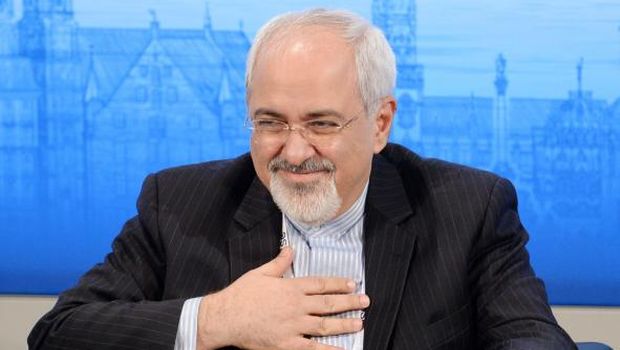
Iranian Foreign Minister Mohammad Javad Zarif attends a question and answer session at the 50th Security Conference in Munich, Germany on February 2, 2014. (EPA/Tobias Hase)
Munich, Asharq Al-Awsat—Iranian foreign minister Mohammad Javad Zarif said on Sunday that Iran was ready to improve its relationship with Saudi Arabia, based on what he said were the two states’ common interests in the region.
Speaking at the annual Munich Security Conference in Germany, Zarif also welcomed US President Barack Obama’s vow to veto any new sanctions legislation passed by the US Congress.
In response to questions by Asharq Al-Awsat Editor-in-Chief Adel Al Toraifi about Iran’s next step in light of the US president’s decision, Zarif said Iran was providing full access to inspectors from the International Atomic Energy Agency (IAEA) to monitor its compliance with the interim nuclear deal reached with the P5+1 (the five permanent members of the UN Security Council, plus Germany).
Answering a second question on Iranian policy towards its neighbors, in particular Saudi Arabia and a possible trip by the Iranian foreign minister to the Kingdom, Zarif said Iran was pursuing positive ties with states across the region including Turkey, Qatar and the United Arab Emirates.
He went on to emphasize that relations with Saudi Arabia were “important” to Iran, and that he was willing to begin dialogue with Saudi officials in which the concerns of both sides could be addressed.
Zarif said he acknowledged the need of regional states to feel secure and said “we have to start from our commonalities.”
His comments followed an interview with Reuters on Saturday, in which he said: “I believe Iran and Saudi Arabia share a common interest in a secure environment.”
“Neither one of us will benefit from sectarian divisions, neither one of us will benefit from extremism in this region . . . We can work together in order to have a safer neighborhood. There is no need for rivalry,” he added.
In other comments during the panel discussion on Iran, Swedish Foreign Minister Carl Bildt, IAEA Director General Yukiya Amano, and US Senator Christopher Murphy all expressed their hope that a long term deal between Iran and the P5+1 countries over the controversial Iranian nuclear program could be reached.
The next round of negotiations between the seven parties is due to take place on February 18 in Vienna, to work out the basis of a long term deal.
On Sunday morning, Javad Zarif and US Secretary of State John Kerry held an unscheduled one-to-one meeting with no details of the conversation released as of yet.
The IAEA Director General also confirmed that Iran has been cooperating to implement its six practical measures from the Geneva deal and that both sides will meet on February 7 to iron out the next phase of IAEA inspections to verify Iran’s compliance with the deal over military instalments.
